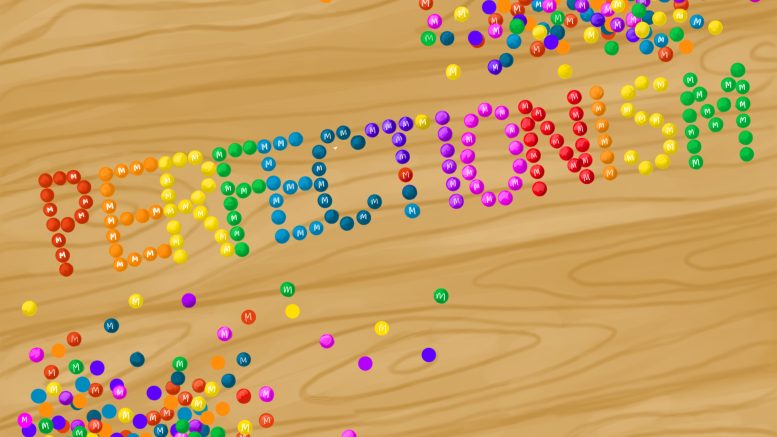This editorial will change the world. An epiphany of nostalgic notoriety and avant-garde
conception that historians will say encapsulated the zeitgeist of the 21st century.
All I need to do is pick a topic and write about it. How difficult can that be?
I could write about the recent controversy surrounding the Ticketmaster and Live Nation
monopoly. Everyone would read an article with Taylor Swift in the headline. But that is not
original. News outlets everywhere have already reported on it.
Okay, I need a more creative take. Maybe I could discuss prevalent changes to the
podcasting landscape that have occurred since the beginning of the COVID-19 pandemic.
But what if I am not knowledgeable enough about podcasts to develop an argument? Also,
absolutely no one will be excited to continue reading about the effects of COVID-19.
This is so frustrating. Okay, focus, Harmat. All I need is an innovative topic that I am super
informed about. Then my editorial can be emotive and compelling. Remember, the aim is to
change people’s lives within 800 words. Simple.
What if I propose that all final exams should consist of project-based learning? Though, I
do not want everyone to assume I have a low GPA.
I could argue that society should not expect 17-year-olds to have their future careers
planned out. Yes, that is a relatable take! My only concern is revealing that I am insecure
about my life decisions. That is not a level of vulnerability I am ready to achieve with
strangers.
That is a glimpse of my process when writing this editorial. You may already be familiar
with the cycle of becoming inspired with an idea, overthinking it and then becoming
discouraged after you veto it. But what might be different between you and I is the
frequency, severity and duration of which that occurs. In five weeks, I repeated this process
with no less than 50 editorial topics and seven mental breakdowns.
I attribute my tendencies to perfectionism, which the American Psychological Association
defines as “the tendency to demand of others or of oneself an extremely high or even
flawless level of performance, in excess of what is required by the situation.” In my
experience, this manifests as self-destructive thoughts and behaviours, excessive concern
for social evaluations and an overwhelming tendency to procrastinate.
I spend hours hyper-focusing on simple tasks. I spend days lamenting over poor
performance, weeks avoiding vital conversations and years attempting to appease people.
And I will likely spend my entire life cycling through feelings of inadequacy, obsession and
paranoia.
Perfectionism is exhausting and can be debilitating.
I want people to understand that perfectionism is about more than just striving to do well. If
I do not develop consistent coping mechanisms, these tendencies will consume my life.
I have always been a perfectionist, but the effect this has had on my life has fluctuated
over time. In September 2021, I entered the faculty of science at the University of Manitoba
and began attending classes virtually. Thus, I communicated with new classmates
exclusively over Instagram and Telegram. During this time I was also meeting lots of high -achieving students completing pre-requisites for application to the Max Rady college of
medicine.
These circumstances were not conducive to my mental health. Being a perfectionist, I
spent hours scrolling through Instagram and LinkedIn profiles, comparing my unedited life to
people’s highlight reels.
The severity and frequency of this obsessive behaviour almost cost me my mental health
and my grades.
My perfectionism becomes easier to manage whenever I acknowledge that strangers
perceive my life the same way I perceive theirs. From the outside, my life looks great. I am
managing four classes, three jobs, two student groups and one volunteer commitment. I am
maintaining friendships while fostering new ones, and I am part of communities where I
belong.
However, strangers will never know the obstacles I overcome daily. The reverse is equally
true, and my goal is to always remember that.
I tend to idolize individuals and place them on pedestals. I do this because if other people
are capable of perfection, then there is a chance that I am, too.
This habit is a trap that I am working to escape. Instead of obsessing over the
achievements of individuals, I am working to focus on our collective humanity. That is the
true reason I am writing about my perfectionism.
Regardless of our backgrounds or identities, we all have limitations to overcome. Whether
it is perfectionism, Parkinson’s or parental trauma, singer-songwriter Amanda Marshall said
it best: “everybody’s got a story that could break your heart.”
University is a place where we try to hide our imperfections in fear of being seen as weak or
incapable. I implore you to embrace your imperfections and use them to guide your journey of self-reflection and growth. I do not think this editorial is changing anyone’s life, and that is okay. I just hope that readers feel less alone in their humanity.



